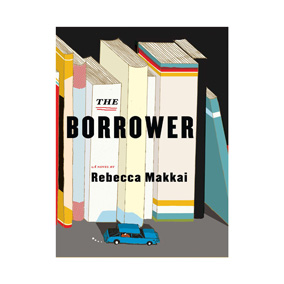
Warning: May contain spoilers
Questions and Topics for Discussion
1. In the eyes of the law, taking Ian away from Hannibal is a criminal act, but it's difficult to fault Lucy for her actions. Do you trust Lucy's version of events? Is she a reliable narrator?
2. Lucy claims that "Hannibal" is not the town's true name. Do you think that "Hull" is her true name, or did she choose it because it fits "snug between Huck and Humbert"? (p. 2)
3. Under what circumstances is it acceptable to take a child away from his or her parents? Based on what you know about Janet Drake, is she an "unfit" parent?
4. Who is "the borrower" in the novel?
5. Sophie Bennett, a teacher at Ian's school, tells Lucy that Ian will "do fine no matter what. Shit will hit the fan when he announces he's gay, but he'll get through it." (p. 25) Is Ian as resilient as Sophie thinks?
6. Even though she was born in America, Lucy frequently meditates on her Russian heritage. Do you think Americans ever completely shrug off the shadow of their ancestors' homeland?
7. The "reformed" homosexual Pastor Bob is both a hilarious and a tragic character. Is he driven purely by profit, or do you think he truly believes it's possible and right to change one's sexual orientation?
8. What were the seminal books of your childhood? Are any of them mentioned in The Borrower?
9. In many ways, The Borrower is Lucy's coming-of-age story as much as it is about Ian. Is she—like Jim in The Adventures of Huckleberry Finn—freed at the end of the novel or—like Humbert in Lolita—diminished by her experiences?
10. Do you agree with Lucy when she writes: "You think you can't go home again? It's the only place you can ever go"? (p. 301)
11. Does one have to first become a parent—or, in Lucy's case, a parent proxy—in order to come to terms with one's own parents?
12. Books have been written and accessible for only a fraction of humankind's time on earth. Can you imagine living in a world without literature? How might your life have turned out differently if there were no books to read?
Read O's review of The Borrower
See which books made O's 2011 summer reading list
11. Does one have to first become a parent—or, in Lucy's case, a parent proxy—in order to come to terms with one's own parents?
12. Books have been written and accessible for only a fraction of humankind's time on earth. Can you imagine living in a world without literature? How might your life have turned out differently if there were no books to read?
Read O's review of The Borrower
See which books made O's 2011 summer reading list




